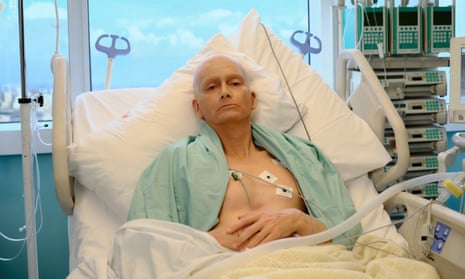A round mid-October, almost a month after Vladimir Putin called for the partial mobilisation of Russian citizens to fight the war in Ukraine, there was a knock at the door of the Moscow flat that is registered as my official residence in the country.
The family friends who reside there opened the door and were greeted by two officers from the Russian military administration, who asked them whether I was at home. They said I had not been home in more than 20 years.
The mobilisation was declared by Putin on the 21 September, after half a year of strategic failures, senseless deaths and humanitarian atrocities at the hands of the Russian army in Ukraine. There are an estimated 356,520 Russian casualties to date, close to 40% of the entire Russian armed forces. The Kremlin initially assumed it would be a two-week affair in which the army marches into Kiev and topples the Volodymyr Zelenskiy government. However, the conflict has dragged on into a bloody stalemate with accelerating Russian losses of equipment, personnel and territory, culminating in whispers that Ukraine now plans to try to recapture Crimea, annexed by Russia in 2014.
Russia’s morale has dropped as quickly as its soldiers on the battlefield, as swaths of the initial, professionally trained invasion force were wiped out and pushed back by unexpectedly stalwart Ukrainian resistance. It was decided that new blood was needed for the campaign even though Putin had earlier declared that there would not be a mobilisation. Attempts at voluntary recruitment proved to be neither successful nor popular. State-controlled media tried to paint the campaign in a positive light but the grim truth inexorably found its way home, through personal communications and Telegram posts by soldiers at the front.
Putin’s “partial” mobilisation saw, at first, the conscription of men from central and far eastern territories, tens of thousands of miles away from Moscow and St Petersburg. However, in a surprisingly quick turn of events, rumours began to circulate of people being called up from cities at the western end of the country, including the capital.
My own call-up is in equal parts confusing and unsurprising. My family’s relationship with the Russian state has not been exactly ideal since Putin’s ascent to power in 2000. As a result, I would expect to be near the top of any list of persons to be shipped off to eastern Ukraine for use as cannon fodder.
This relationship, a story at times stranger than fiction, has been closely documented by the press and entertainment industries ever since the death of my father, Alexander Litvinenko, an outspoken Putin critic. That was in 2006, weeks after he drank tea laced with the radioactive isotope polonium 210 at a London hotel. It’s an event that damaged relations between Russia and the United Kingdom. Even now, more than a decade and a half later, my father’s death is the subject of a new ITV drama series spanning more than four hours and starring one of the UK’s most prominent actors, David Tennant.
The story is so unbelievable that certain of the more extraordinary parts had to be excluded from the production as it was thought they would come off as poor fiction.
And therein lies the truly confusing element. Russians are well aware of our story. How my mother and I fled, together with my father, gained political asylum in the UK and then had to witness his slow and agonising death from what can only be described as a microscopic nuclear weapon – never to return to the country that birthed and so wantonly scorned us.
And yet, despite all that, the military administration turned up at an address I have not resided in for two decades and, with total sincerity and eagerness, looked to take me away to the front.
Their confusion at the answer given by the current residents at my flat seems indicative of the whole Ukraine conflict; a complete lack of communication and understanding between the brutish ideology of the Kremlin and the suffering of their increasingly resentful, unwilling subjects. Had I been at home, I would have been given about 30 minutes or so to pack my stuff and head out of the house with them, probably never to return.
I wonder if any of my childhood friends had similar home visitors, while lacking the good fortune I enjoyed – to be far absent from the country (as, ironically, are many of the children of the Russian elite who conceived this conflict).
Dodging a bullet is in equal parts exhilarating and terrifying – but I am glad that phrase is metaphorical and not literal.
Do you have an opinion on the issues raised in this article? If you would like to submit a letter of up to 250 words to be considered for publication, email it to us at observer.letters@observer.co.uk
